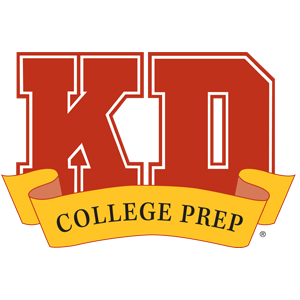There are a variety of test prep methods you can turn to when getting ready for the SAT® and ACT® tests. The methods that address the questions of how to prepare for the SAT or ACT test at home can be customized to suit your own learning style, preferences, and needs. For example, you can benefit from working through a structured online test prep program from the comfort of your home. In addition to a test prep program, you can put together your own complementary study plan that focuses on your problem areas.
Whichever way you choose to address the question of how to prepare for the ACT and SAT tests, just keep in mind that you’ll want to begin preparing sooner rather than later. In this guide we’ll explain ways you can prepare for tests at home and provide some details about test prep resources available to help simplify the process.
Navigate through this article:
Studying for the SAT and ACT Tests at Home: A 10-Step Guide
1. Learn About the Test Format and Upcoming Changes
Let’s dive in! Before you can bury your nose in a book, however, you’ll want to become familiar with the format and question types found on the SAT and ACT tests. Although both of these tests are used in college admissions decisions and for other important criteria such as scholarships, there are considerable differences between them. For starters, they follow different formats; they have different types of questions; and they are scored differently.
Here’s a quick rundown of the test formats:
SAT Test Format*
- Evidence-Based Reading
- Writing & Language
- Math (no calculator)
- Math (with calculator)
* Changes are coming soon to the SAT test.
ACT Test Format
- English
- Math
- Reading
- Science
- Writing (with an optional essay)
Some of these sections are currently comparable, such as the SAT Evidence-Based Reading and ACT Reading sections. However, the ACT test includes a science section, while the SAT test doesn’t. In addition, the ACT reading passages are longer, and the SAT Math section comprises more of your total score (50%) compared to the ACT Math section (25%). Furthermore, while the ACT test is entirely comprised of multiple choice questions, the SAT test has multiple choice and grid-in questions. But remember, changes are coming to the PSAT and SAT tests starting in the fall of 2023.
2. Create a Study Plan & Testing Timeline
Next, it’s time to put a study plan together to help you address the issue of how to prepare for the SAT and ACT tests. There is no one-size-fits-all study plan, as every student has unique needs and different schedules. If you’re in 7th grade, you’ll have far more time to prepare than someone in 10th grade, for example. But not every student is ready to start preparing in the 7th grade and beginning too early can be discouraging for some students. You’ll have to think strategically about your best time to start and how much time you can dedicate to test prep.
Before developing your study plan, try taking a full-length practice exam for both the SAT and ACT tests. This will give you a baseline that you can use as a benchmark for evaluating progress. Examine your results to identify your problem areas and resolve to focus more on those. At KD College Prep, we offer a free initial diagnostic test to help students measure their starting point.
Next, develop a reasonable study schedule. If you’re in 9th or 10th grade, you’ll need to allot more time each week to test prep. If you’re in 7th or 8th grade, your timeline will look different.
It’s ideal to work through your test prep materials during shorter sessions on multiple days of the week, rather than holding a marathon study session in the last two weeks before the test. This will promote better knowledge retention, will help you maintain your concentration while studying, and usually results in better scores.
3. Choose an At-Home Test Prep Program
Figuring out how to prepare for the SAT and ACT tests at home doesn’t mean you have to go it alone. Students who work through a structured test prep curriculum may find it easier to stay on target, and they may also find that their test scores increase. A test prep program will teach you the most effective test-taking strategies, as well as help you learn the material found on the tests.
There are many online test prep programs out there, so how can you choose the right one for you? Consider the following factors:
- Is it available online, allowing you to complete activities from home?
- Is it a one-time course or does the program support you throughout high school?
- Do the class schedules work for you? Are there flexible make-up opportunities?
- Do you prefer live online classes, self-paced activities, or a combination of the two?
- Are printed curriculum materials included? If so, will they ship to your location?
- Are there real people and resources available online or by phone if you need help?
- Does the program provide ongoing practice opportunities?
- Will you be able to take plenty of full-length practice tests? Are test reviews included?
- Do the curriculum materials adapt to reflect changes in the testing environment?
With KD College Prep, you can choose from a variety of online programs, including live and on-demand activities. Plus, you’ll have lots of opportunities for practice test prep from the comfort of your own home.
4. Find a Quiet Study Space at Home
Wondering how to prepare for the ACT and SAT tests in a loud environment? If you have a busy household, it can be especially challenging to prep at home. Your best option for a quiet study space is likely your bedroom, even if you share a bedroom with a sibling. Make any needed adjustments to ensure your study space is as follows:
- Well-lit – Ask your parents or guardians for an extra lamp if need be.
- Distraction-free – If you find yourself gazing out the window, try pointing your desk at a windowless wall. Similarly, try to curb the clutter.
- Comfortable – Ergonomics are important when you’re studying for an hour or two at a time.
- Optimal noise – Some students focus better when listening to instrumental music or white noise. If there’s too much background noise in your home, use headphones.
5. Expand Your Vocabulary
An expansive vocabulary is important for many reasons, including the fact that it may help you score higher on the SAT and ACT tests. You’ll be tested directly on your reading comprehension skills, and so it’s important to know the difference between, say, affable and belligerent, desolate and devoid. Bear in mind that the definition of certain words can vary based on context. So, in reading comprehension sections, be sure to pay attention to the passage in its entirety, not just the individual vocab words.
To bolster your knowledge, use these tips:
- Read, read, and read some more! Yes, Googling the definitions of unfamiliar words you encounter will help you expand your vocabulary, but seeing words in their natural habitat, so to speak, can work even better. Read a variety of books, paying particular attention to the classics. Reading historical documents by figures such as George Washington and Abraham Lincoln is also recommended.
- Choose a word of the day. Write a list of vocab words and choose one to focus on each day. Try to work it into as many conversations as you can.
- Keep it in context. When studying vocab words, it can be easier to cement the definition in memory if you also come up with a sentence that provides context. For example, the word “frenetic” means frantic or frenzied. You might write a sentence such as, “The little kitten was so filled with frenetic energy that she raced up the tall cat tree and immediately leapt off again.”
6. Commit Important Math Formulas To Memory
When you take the SAT test, you’ll have the benefit of having math formulas listed for you in the reference guide. However, the ACT test doesn’t provide formulas for you, and so you’ll have to memorize them. You’ll need to memorize formulas for algebra, geometry, statistics, probability, and trigonometry.
Your test prep program will teach you all of the formulas you’ll need to memorize for the ACT test. You may find it helpful to write them on sticky notes and post them on your bathroom mirror. You’ll be able to refresh your memory each time you brush your teeth or wash your hands.
However, simply staring at the formulas may not be enough to commit them to memory. One of the most effective ways of memorizing the formulas is consistent practice.
7. Take Multiple Practice Tests
You can take practice SAT and ACT tests anywhere, including at home. This is one of the best ways to study for the exams for a couple of reasons. First, you’ll find out which topic areas you know well and which you need to spend more time studying. Second, you’ll get comfortable with the test format and the timing. Practice tests are where students put it all together. Former KD students often say that they are one of the most beneficial ways to boost one’s score.
8. Consider Forming an At-Home Study Group
Even if you’re working through a test prep program, you might want to enlist a few friends to form an at-home study group with you. Choose your group wisely. You’ll want to invite people who are serious about improving their grades and who are less likely to goof off during study time. Ideally, include a mix of people—those who are better with math and those who are better with language.
For best results, have everyone choose a set of specific goals to work toward, as well as an agenda for each meeting. In addition, participants can take turns asking questions about material they’re struggling with, and those who are more familiar with that material can lend a hand. It’s ideal for participants to take turns teaching material to others.
Learning by teaching is known as the Protégé Effect, and it allows for deep, active learning. There is scientific evidence to demonstrate that students who teach concepts to others—even if they just recently learned it themselves—will retain the information better and understand it more clearly. You can harness the Protégé Effect in your study group by taking turns acting as the teacher.
Struggling to band some friends together? Don’t worry! The live-online activities for the Complete™ and Advanced Start™ programs at KD are conducted in a virtual classroom environment where students can openly ask questions and interact with their instructors.
9. Take the PSAT and PreACT Tests
You’ll need to wait until 11th grade to take the PSAT/NMSQT® test, which serves as a qualifier for the National Merit® Scholarship Program. However, some schools offer the PSAT test as early as 8th grade (early offerings vary depending on the school district). This should give you a good idea of where you currently stand and what areas to brush up on as you continue to prep. The PreACT exam is generally offered to 10th graders.
10. Show Up Prepared on Test Day
Take care of yourself on the days leading up to the test. Eat healthy, hydrate, and get plenty of sleep. Pack up all your things the night before the test. On the morning of the test, wake up early and eat breakfast. Allow plenty of time for you to travel to the testing center, and don’t forget to take everything you need with you. Check the test website ahead of time to be sure that you’re not missing anything.
Testing can be stressful on its own. That’s why we recommend that students take these logical steps to avoid increasing anxiety on the morning of the test. Breathe easy, and keep in mind that it’s okay to retake the test (if your timeline allows it).
Can I Prepare for the SAT and ACT Tests By Myself?
Thinking about how to prepare for the SAT and ACT tests by yourself, without the aid of a test prep program? Self-studying is definitely doable, but it can be more challenging. There are some free resources available online, but investing in a structured test prep program can bring better results. You may feel more comfortable choosing an on-demand program online that allows you to work through the material at your own pace, without interaction with live instructors.
How Long Should I Study for the SAT and ACT Tests?
It depends! The amount of time you dedicate each week to studying for the SAT and ACT tests will vary depending on your goals and age group. In general, it’s better to start as soon as you feel ready. The longer you wait to start your prep journey, the less time you’ll have to reach your score goals before it’s time to shift your focus toward college applications.
Most students should plan to start at least a few months before the first test date. You’ll want to increase your weekly prep time as you draw closer to your test dates or take advantage of times when you have less on your plate. For example, many students plan to do several weeks of prep during the summer break when they are not attending classes.
Read more about when to start taking the SAT or ACT tests.
Why Is Preparing for the SAT and ACT Tests Important?
We get it. You spend hours studying and doing homework for your classes, and studying for “extra” exams can sometimes seem a bit overwhelming. Just keep reminding yourself that doing well on the standardized exams may help you get into the college you want, and it might even help you generate some free scholarship money for college! (Plus, you’ll have bragging rights if you score higher than your friends.)
In which grade should I start preparing for the SAT and ACT Tests?
It’s common knowledge that cramming for a test—any test—is never a good idea. Students who plan on pulling an all-nighter before a test in hopes of making up for lost study time are less likely to do well on the exam for two main reasons. First, they have less time to prepare, and second, sleep deprivation equals poor concentration.
It’s always best to plan ahead. If you’re thinking about the grade level in which you should start preparing for the SAT and ACT tests, you’re already making a smart decision. It’s always best to begin preparing well in advance of your test date. There’s no hard and fast rule regarding which grade level is best to start prepping; indeed, different experts offer varying opinions. However, the sooner you begin, the more prepared you’ll be.
At KD College Prep, we recommend that high-performing students begin prep work in 7th or 8th grade with the Advanced Start™ program. Other students may wish to begin preparing in 9th grade or later with our Complete™ Program.
Need help preparing for college admissions?
If you have any questions about KD College Prep and our test prep programs, please get in touch to request a free consultation. We look forward to helping you reach your academic goals!














































